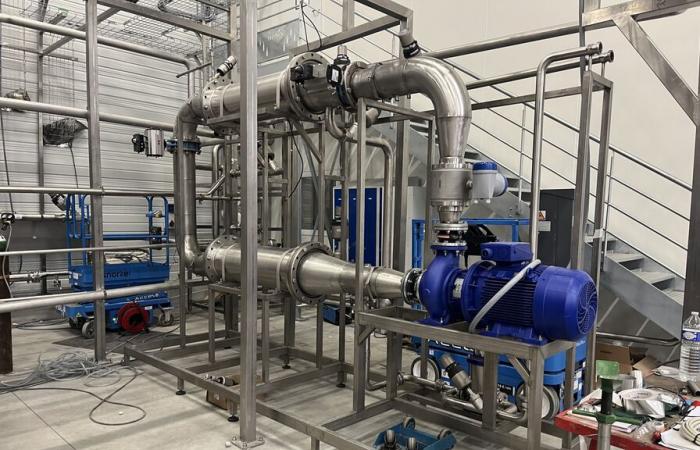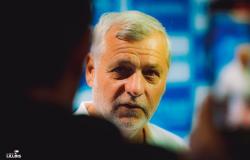
Recovering industrial effluent to obtain water suitable for food contact is the objective of the Life Zeus project (Zero Liquid discharge water reUse), the inauguration of the industrial demonstrator of which will take place on Tuesday October 8. The building is located on the site of the Monin factory in Bourges (Cher), which produced 55 million liters of syrup and fruit-based drinks in 2023. 6.5 million euros were needed to implement implementation of the tool, financed to the tune of 4.5 million euros by Monin and the balance by European funds (Life call for projects) and the Loire-Bretagne, Adour-Garonne and Rhône-Water Agencies. Mediterranean-Corsica.
For Monin, the idea of reusing process water dates back to 2014, when the move of the historic factory from the city center to the outskirts of Bourges was initiated, for an inauguration three years later. “We use a lot of water in our washing process, mainly to rinse our facilities between our different productions. Tension over water has been growing for several years. When we produce a perfume, if we do not want to contaminate the next perfume, we must carry out rigorous washing.explains Rodolphe Buclin, Monin’s CSR director.
The syrup manufacturer had already initiated a reduction in its water consumption. In 2017, Monin claimed 2.9 liters of water consumed per liter of syrup manufactured, including both water included in the product and water used for washing, and 1.8 liters in 2023.
A process that relies on membrane filtration
On the technical side, the Life Zeus project is led by the National Institute of Applied Sciences of Toulouse (Haute-Garonne) and the manufacturer of water treatment equipment Chemdoc Water Technologies, based in Hérault. Objective: rely on an existing technology, membrane filtration, to valorize the three flows of process water and mineral salts (to recycle 65% of the sodium thrown into the sewer following the treatment of softener regenerations ), and a flow of organic loads, which will be used in methanization with an already identified outlet.
“We are completing phase 1 of effluent treatment and water production. We produce osmosis water, resulting from the filtration of effluents. With water suitable for food contact, we will have to control 100% of the risks, we become a water treater. There are therefore hygiene issues, but also economic issues, to limit possible additional costs. We do not expect a return on investment”specifies Ludovic Lanouguère, Monin’s Environment project manager, and Life Zeus project manager.
The installations take place in a building of more than 350,000 m². In order to carry out quality controls, water will not be poured into the process before the second quarter of 2025. The factory will always be connected to city water for the revenues of its products, and to compensate for certain needs. According to initial project estimates, 45,000 cubic meters of wastewater will be treated per year (i.e. 100% of volumes), and 40,500 m3 reused on site.
“We are waiting to demonstrate this process before deploying it, possibly, in other factories”hopes Rodolphe Buclin.





